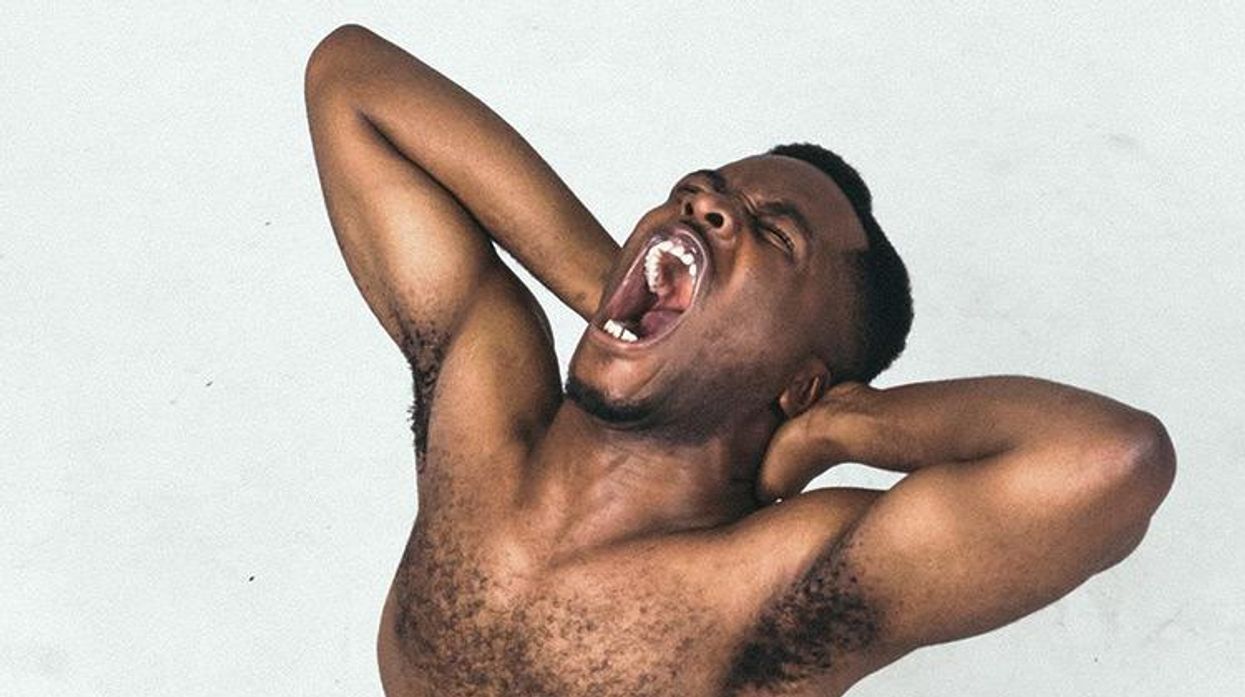Health
Where Disability Justice and LGBTQ Rights Intersect

How disabled queer and trans people of color are daring to imagine (and create) spaces where people of all shapes, sizes, and abilities have intrinsic value.
January 11 2019 7:06 AM EST
By continuing to use our site, you agree to our Privacy Policy and Terms of Use.

How disabled queer and trans people of color are daring to imagine (and create) spaces where people of all shapes, sizes, and abilities have intrinsic value.
The disabled were front and center, blocking the halls of Congress with their walkers, getting dragged from wheelchairs and arrested. They were HIV-positive, physically disabled, chronically ill, neurologically diverse, or suffering from mental or psychological impairment. Few Americans have more at stake in the fight to save the Affordable Care Act than the disabled -- particularly those who are also LGBTQ people of color. Without healthcare, their lives -- our lives -- are at risk.
Since the early aughts, a new generation of "crips" and "crazies" or those "mad" -- as activist Leah Lakshmi Piepzna-Samarasinha affectionally calls her cohort -- have begun advocating for something more than equality. They want justice.
"Disability justice was created by disabled black and brown and queer and trans people because of how single issue, white, male, and straight the disability rights movement has historically been," Piepzna-Samarasinha says. The movement has an intersectional platform that seeks essential changes to systems that oppress or endanger those who aren't part of the cisgender, able-bodied, neurological-normative, white supremist hetero-patriarchy.
Piepzna-Samarasinha, the award-winning author of Love Cake, who is a queer disabled femme writer, activist, and artist of Burgher/Tamil Sri Lankan and Irish/Roma descent says, for example, "police violence against black and brown people is a disability justice issue because at least 50 percent of black and brown people killed by the cops are disabled, autistic, deaf, [or] psychiatrically disabled."
Numerous studies support that statement or suggest higher rates. For example, in 2015, the Treatment Advocacy Center reviewed material going back to 1980 and concluded, "When data have been rigorously collected and analyzed, findings indicate as many as half of all law enforcement homicides ends the life of an individual with severe psychiatric disease." That analysis leaves aside an untold number of people with other disabilities who've also been killed by cops.
In Care Work: Dreaming Disability Justice,
Piepzna-Samarasinha, one of the movement's cofounders (others include Sins Invalid founder Patty Berne, poet Leroy F. Moore Jr., community organizers Mia Mingus and Sebastian Margaret, and Eli Clare--the disabled trans author-poet whose 1999 work Exile and Pride explored intersections of queerness and disability), attempts to capture the essence of what disability justice is, what its activists want, and what messy debates continue to unfold in defining, activating, and furthering a revolutionary movement that dares imagine a world where all bodies are celebrated, integrated, and supported communally.
Piepzna-Samarasinha quotes Patty Berne's Skin, Tooth and Bone: A Disability Justice Primer, explaining: "A disability justice framework understands that all bodies are unique and essential, that all bodies have strengths and needs that must be met." But too often, Piepzna-Samarasinha says, those responsibilities fall on women and other femmes. "I want care work to be seen as, and valued as, work -- skilled work, real work, not just some invisibilized shit that of course you do because you have a pair of tits."
That work can be exhausting, Piepzna-Samarasinha admits, particularly in care networks where all participants are disabled and have their own associated needs and lack of resources. "I also want there to be big, collective ways of making care work available to everyone, whether or not we have friends and community--because so many sick and disabled people are, or get, isolated really fucking fast," she says.
Care Work challenges us to create a world where our value to society is not dependent on our physical, mental, or psychological capacities.
"Disabled people have always existed," Piepzna-Samarasinha points out. "We're not some aberration or scourge or tragedy... It is a real mind-blowing paradigm shift to understand that we are not individual health defects, we are part of a people...."
"There's a million implications of realizing we have disabled ancestors," Piepzna-Samarasinha argues. "One of which is, How did we survive?" Answering that can provide guides for doing so again, especially in these difficult times. "Most disabled people I know are and have been terrified since Trump took power," she says.
But, Piepzna-Samarasinha argues, "We are not going anywhere. We are not going to stop being disabled, autistic, deaf, mad, or sick. The networks and organizing we've been creating are not going to stop. Our disabled ancestors, from Harriet Tubman to Marsha P. Johnson to Leslie Feinberg to Gloria Anzaldua, fought back as disabled people and survived colonization and fascism. And we're going to keep each other alive."
Piepzna-Samarasinha believes now is the perfect time for abled-bodied activists to see how their concerns overlap with those of the disabled. "Crips and trans people already know what it means to fight a system you need to interact with to survive, that's designed to shut you out and kill you."
She adds, "If we [all] came together, we could make a revolution!"
Charlie Kirk DID say stoning gay people was the 'perfect law' — and these other heinous quotes